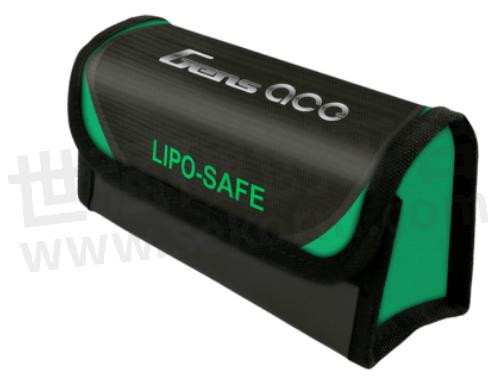Lipo Battery Storage FAQs

Lithium Polymer batteries (LiPo batteries) have become increasingly popular in various applications, ranging from consumer electronics to RC hobbyist devices. Proper storage of LiPo batteries is crucial to ensure their longevity, safety, and optimal performance. In this article, we will address common FAQs regarding Lipo Battery storage, covering aspects such as duration, charging status, environmental conditions, and more.

Fig.1
How should LiPo batteries be stored?
LiPo batteries should be stored in a cool and dry place, away from direct sunlight and extreme temperatures. Ideally, a fireproof LiPo bag or metal container is recommended for storage to enhance safety.
How long can a LiPo battery sit unused?
LiPo batteries should not be left unused for extended periods. It is recommended to use or charge them at least every 3 months to prevent voltage drop and deterioration.
Is it better to store LiPo batteries charged or uncharged?
For long-term storage, LiPo batteries should be stored with a charge between 40-60%. Storing them fully charged or fully depleted for extended periods can lead to capacity loss and decreased performance.
How do you store LiPo batteries in the house?
Store LiPo batteries in a fire-resistant container, preferably a LiPo bag, and keep them in a cool, dry place. Avoid storing them near flammable materials or in direct sunlight.
Can I store LiPo batteries in the garage?
While it's possible to store LiPo batteries in the garage, it is crucial to ensure that the environment remains cool and dry. Avoid exposing them to extreme temperatures and protect them from potential fire hazards.
Can you store LiPos in cold weather?
Extreme cold can affect the performance of LiPo batteries. It is advisable to store them in a cool place, but not in freezing temperatures. Extreme cold can lead to reduced capacity and potential damage to the cells.
What's the best temperature for lipo battery storage?
The optimal temperature for storing LiPo batteries is in the range of 20℃ to 25℃ (68℉ to 77℉). Storing LiPo batteries within this temperature range helps maintain their stability and longevity.
What is the best thing to store LiPo batteries in?
The best containers for LiPo bettery storage are fireproof bags or metal containers with tight-fitting lids. These provide an additional layer of safety in case of a battery failure.
What is the safe LiPo battery storage voltage?
The safe storage voltage for LiPo batteries is generally between 3.7V and 3.85V per cell. Storing them within this range helps maintain their health during periods of inactivity.
What is the storage voltage for 3.7V LiPo?
The storage voltage for a 3.7V LiPo cell is typically around 3.85V. Ensure that each cell in the battery is at this voltage range before storing.
What is the best percentage to store batteries?
Storing LiPo batteries at around 40-60% charge is considered optimal for long-term storage. This percentage helps prevent over-discharge and overcharge issues during extended periods of inactivity.
What voltage should a 3S LiPo be stored at?
A 3S (3-cell) LiPo battery should be stored at a total voltage of around 11.1V to 11.55V. This corresponds to approximately 3.7V to 3.85V per cell.
Conclusion
Proper storage is key to maximizing the lifespan and safety of LiPo batteries. Following these guidelines ensures that your batteries remain in optimal condition, whether used in consumer electronics, RC vehicles, or other applications. By understanding the best practices for LiPo battery storage, users can enjoy reliable performance and minimize the risk of safety hazards. As a global leader in lithium battery cell manufacturing, Grepow offers professional customization solutions for lipo battery and Battery Management Systems (BMS), catering to your specific application requirements.
- +1 Like
- Add to Favorites
Recommend
- What Is a 3.8V LiPo Battery?
- Can Lipo Battery Cells Be Shipped by Air?
- Exploring LiPo Battery Connector Types
- What Is The C Rating On A Lipo Battery?
- What Is A 12S Lipo Battery?
- How to Discharge a LiPo Battery?
- How to Choose Lipo Battery for Medical Device?
- Top LiPo Battery Manufacturers You Can Trust
This document is provided by Sekorm Platform for VIP exclusive service. The copyright is owned by Sekorm. Without authorization, any medias, websites or individual are not allowed to reprint. When authorizing the reprint, the link of www.sekorm.com must be indicated.






























































































































































































































































































































































































































































































































































































































































































































































































































































































